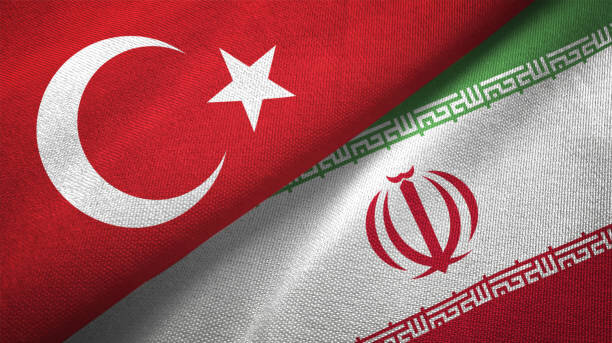The Turkish media's role in shaping perceptions of Iran’s regional strategy

MADRID – In recent days, several Turkish media outlets, including Türkiye Gazetesi, have spread unfounded accusations about an alleged Iranian plan to “destabilize” Syria.
An article recently published by Türkiye Gazetes claimed that generals from the Islamic Revolution Guard Corps (IRGC) and former senior officials of Bashar al-Assad's government allegedly held a secret meeting in Najaf, Iraq, to discuss a coup against Damascus. Although the article does not cite specific sources, it claims the plan involved groups such as the PKK, Hashd al-Shaabi, and Hezbollah, with the aim of destabilizing the Syrian government, currently led by the group Hayat Tahrir al-Sham (HTS). Furthermore, it was claimed that Tehran intended to target the life of Mohammad Al-Jolani, the self-appointed leader of the transitional government in Syria.
Similar accusations appeared in Turkish media months ago, regarding an alleged secret meeting between Iranian officials and members of the PKK, considered a terrorist group by Ankara. According to unconfirmed Turkish sources, the meeting allegedly took place in an Iraqi market, where the PKK requested 2,000 kamikaze drones. It was also claimed that Esmail Qaani, commander of the IRGC Quds Force, was present, and that Iran agreed to supply 1,500 drones for delivery to northern Iraq. However, the shipment was canceled due to Turkish surveillance. An Iranian security source denied these accusations, calling them "pure fantasy" and suggesting the report might be part of a disinformation campaign orchestrated by Israel to undermine Iran’s relations with its neighbors and create regional tensions.
What are all these lies for?
Such disinformation campaigns, which seem to benefit Israeli interests, must be understood within the context of Turkey’s struggle for regional hegemony. As several analysts have pointed out, Turkey’s use of terrorists as a geopolitical tool is well-documented. Turkey exploited the territory under its control to allow the movement of terrorist forces into Syria and Iraq, while simultaneously launching a fierce crackdown on Kurdish groups. One of the most revealing aspects of Turkey’s relationship with terrorists was the massive oil trade between Ankara and terror factions, with thousands of barrels of oil being transported to Turkey from extremist-controlled areas in Syria and Iraq for sale on international markets.
Turkey has also provided military and logistical support to Hayat Tahrir al-Sham (formerly al-Nusra Front), which received Turkish financial and intelligence support.
From one perspective, the Turkish media disinformation campaign primarily aims to ensure Turkey’s regional hegemony at the expense of Tehran. With the fall of al-Assad in Syria as an explicit goal for Turkey, Ankara sees a new opportunity to increase its influence in the region. In this context, it is known that Turkey is considering building military bases in Syria and providing training and weapons to the country’s military. Additionally, the deployment of up to 50 F-16 fighter jets as a temporary air force in Syria is being considered.
In a broader context, Turkey, as a regional rival to Iran, could significantly consolidate and expand its power through its allied groups in Syria, such as the self-styled Syrian National Army and Hayat Tahrir al-Sham. This scenario not only highlights the geopolitical competition between the two countries but also the strategies employed by Turkey to project its influence, while Iran continues to play a key role in the region.
With the removal of Bashar al-Assad, Ankara finds itself at a historic crossroads that could redefine its influence in West Asia. The government of Recep Tayyip Erdogan seeks to capitalize on this opportunity to consolidate its regional position and advance its geopolitical strategy, with a clear focus on the rivalry with Iran. In this context, Turkey views the fall of al-Assad not only as a shift in Syrian political dynamics but also as a way to increase its power and influence over key regional actors.
So far, Turkish policy in Syria has revolved around three key pillars. The first is neutralizing the threat posed by the Syrian Democratic Forces (SDF), a group supported by the United States and primarily composed of factions linked to the PKK. The second pillar focuses on facilitating the return of over three million Syrian refugees residing in Turkey, whose presence has caused significant economic and social tensions. Finally, Turkey aims to reaffirm its leadership in the regional competition, securing its influence in a power balance historically dominated by Russia and Iran.
The Turkish government appears satisfied with recent developments in Syria and is making efforts to play a central role in the country’s reconstruction and political transition. Through active diplomacy, Turkey seeks to solidify its position as a key actor in Syria's future, driven by Ottoman nostalgia and a vision to restore its historical influence in the region. However, these efforts have not gone unnoticed, and regional actors such as Iran have expressed concern over Turkey’s growing interference.
Erdogan and other senior Turkish officials have adopted an explicit strategy to limit Iran’s influence in the region, positioning Ankara as the main competitor to Tehran in the struggle for regional influence. In this framework, recent reports about alleged Iranian attempts to destabilize Syria, along with rumors of a supposed secret meeting between senior Iranian military officials and members of the PKK, which were denied by Iran, form part of a broader manipulation strategy. This strategy aims to erode Iran’s image and weaken its position on the regional stage, sowing distrust in the international community about Tehran's intentions.
Turkey, however, should be aware of Iran's potential countermeasures. If these media campaigns spiral out of control and provoke Tehran, the resulting actions could seriously affect Turkey's economy and have far-reaching cultural, social, and geopolitical implications.
Leave a Comment